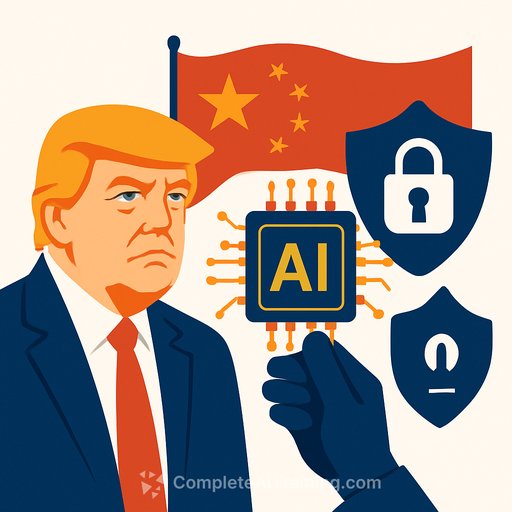Legal and National Security Concerns Over Trump’s AI Chip Deal with China
President Trump’s recent agreement with leading chipmakers Nvidia and AMD has sparked intense debate across legal and security sectors. The deal permits the sale of advanced artificial intelligence chips to China, in exchange for the U.S. government receiving a 15% share of the companies’ revenue from these sales.
This arrangement raises pressing legal questions regarding export controls and compliance with existing trade restrictions. Allowing cutting-edge AI technology to be sold to China could conflict with current U.S. laws designed to limit the transfer of sensitive tech to foreign adversaries.
Legal Implications of the AI Chip Deal
The core legal challenge lies in whether this deal circumvents established export regulations. Experts argue that the government’s revenue share does not address potential violations of export control statutes or the risk of technology misuse.
Legal professionals must consider if the agreement aligns with international trade law and whether it sets a precedent for future tech transactions involving sensitive AI components. This scrutiny extends to how such deals impact intellectual property protection and national economic interests.
National Security Concerns
From a national security standpoint, the transfer of advanced AI chips to China is highly contentious. These chips could enhance capabilities in areas related to military, surveillance, and cyber operations.
National security analysts warn that the deal might empower a strategic competitor with technology that could undermine U.S. interests globally. The 15% revenue cut may not sufficiently offset the potential risks posed by this technology transfer.
Expert Perspectives
Scott Kennedy from the Center for Strategic and International Studies highlighted these issues in a discussion on the topic. He emphasized the need for thorough legal review and clear guidelines to ensure that national security is not compromised by commercial agreements.
Legal practitioners engaged in technology and trade law should monitor developments closely. Understanding the intersection of export controls, government revenue-sharing models, and international relations is critical for advising clients and shaping policy.
Further Learning
- Explore AI courses focused on compliance and security
- Certification programs for AI and automation legal frameworks
For legal professionals, staying informed on evolving policies around AI technology exports is essential. This deal offers a case study in balancing commercial interests with national security and legal compliance.
Your membership also unlocks:






